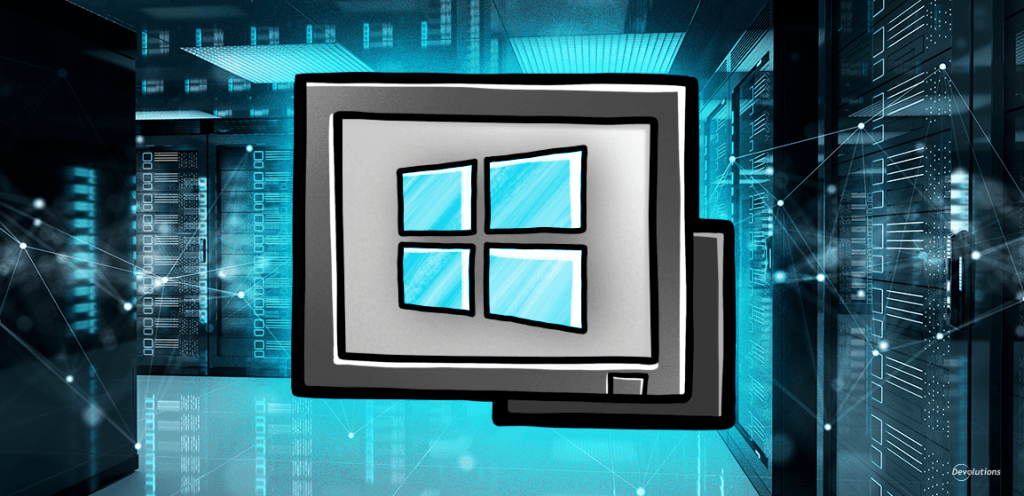For organizations weighing their IT infrastructure options, the choice between a self-hosted solution and cloud-based solution is foundational, determining how data is stored, who controls data, and how security measures are enforced. While cloud services offer scalability and convenience, they come with their own risks. Self-hosted solutions, like Devolutions Server, provide an alternative that prioritizes full network, database, and application control.
Understanding self-hosting
A self-hosted solution is one where the software and its associated data are deployed, managed, and maintained within an organization’s IT infrastructure. Unlike cloud-hosted solutions, where information resides on third-party servers, self-hosting enables organizations to:
- Maintain full data control by storing information in their own databases;
- Restrict network access, ensuring data remains isolated from the Internet;
- Exercise complete application control, managing their servers and software without external dependencies.
Security
Recent high-profile security breaches have emphasized the risks of entrusting data to external cloud providers, reinforcing the advantages of retaining full data control through self-hosting:
- In July 2023, Microsoft disclosed a compromise of Exchange Online, where attackers exploited validation flaws in Microsoft's hosted services, leading to unauthorized access to sensitive data.
- Similarly, Amazon Web Services (AWS) has experienced multiple breaches over the years: for instance, in May 2022, a security firm identified over 6.5 terabytes of exposed information on servers belonging to Pegasus Airlines hosted on AWS.
- More recently, in August 2024, researchers discovered that hackers from the Nemesis and ShinyHunters groups had exploited misconfigured public websites hosted on AWS, exposing over 2 terabytes of sensitive data — including customer information, credentials, and proprietary source code.
Many of these breaches stemmed from customer misconfigurations — particularly in services like Amazon Simple Storage Service (Amazon S3) — errors that, had they occurred in a self-hosted environment, would likely have been contained within an internal network rather than exposed to the open Internet.
Control
That said, self-hosted solutions are not impenetrable and require rigorous security measures. However, by managing servers and storage in-house, businesses have the flexibility to implement and enforce security policies that align with their specific needs. This approach enables organizations to:
- Define retention policies and enforce granular access controls;
- Ensure data is not subject to provider-driven data mining;
- Maintain full autonomy over data storage and handling;
- Avoid vendor lock-in and the unpredictability of provider-driven changes.
With a solution like Devolutions Server, organizations benefit from a robust self-hosted solution that integrates seamlessly with identity management systems like Active Directory and Microsoft Entra ID, provides role-based access control (RBAC), and generates detailed audit logs, ensuring that businesses remain in full command of their IT infrastructure.
Technical implementation
Implementing a self-hosted solution requires careful planning and expertise. Organizations must evaluate:
- Infrastructure requirements: What hardware and network architecture best support deployment?
- Storage configurations: How should data be stored for both security and accessibility?
- Access controls: Who should have permissions, and how is the principle of least privilege enforced?
- Business continuity: What failover mechanisms ensure service availability and facilitate disaster recovery?
For many, these considerations can seem daunting. Traditional self-hosted solutions have often been synonymous with complexity, high costs, and prolonged deployments.
Devolutions Server challenges that notion: it deploys rapidly, integrates effortlessly with existing IT environments, and remains cost-effective, even for small and medium-sized businesses (SMBs).
The alternatives
While self-hosting offers unparalleled control, cloud services remain compelling for their rapid deployment, minimal maintenance, and seamless scalability. For organizations lacking the resources to manage infrastructure in-house, cloud-hosted solutions, like Devolutions Hub, offer a pragmatic choice.
For organizations seeking a middle ground, hybrid approaches offer a compromise. For example, Microsoft’s "Bring Your Own Key" (BYOK) model allows organizations to store encryption keys in Azure Key Vault while using Azure SQL Database for transparent data encryption (TDE). This model offers a degree of control within a cloud-hosted framework. Other providers offer similar mechanisms to blend flexibility with control.
Conclusion
For businesses prioritizing infrastructure autonomy, self-hosting offers a compelling alternative to cloud solutions, which, while convenient, introduce security and dependency risks. While concerns about cost and complexity have historically deterred some businesses, particularly SMBs, from adopting self-hosted solutions, Devolutions Server eliminates the traditional barriers to self-hosting, delivering a powerful yet accessible solution that prioritizes security, control, and ease of management.
Interested in self-hosting? Get in touch with our Sales team to explore how Devolutions Server can support your needs.





